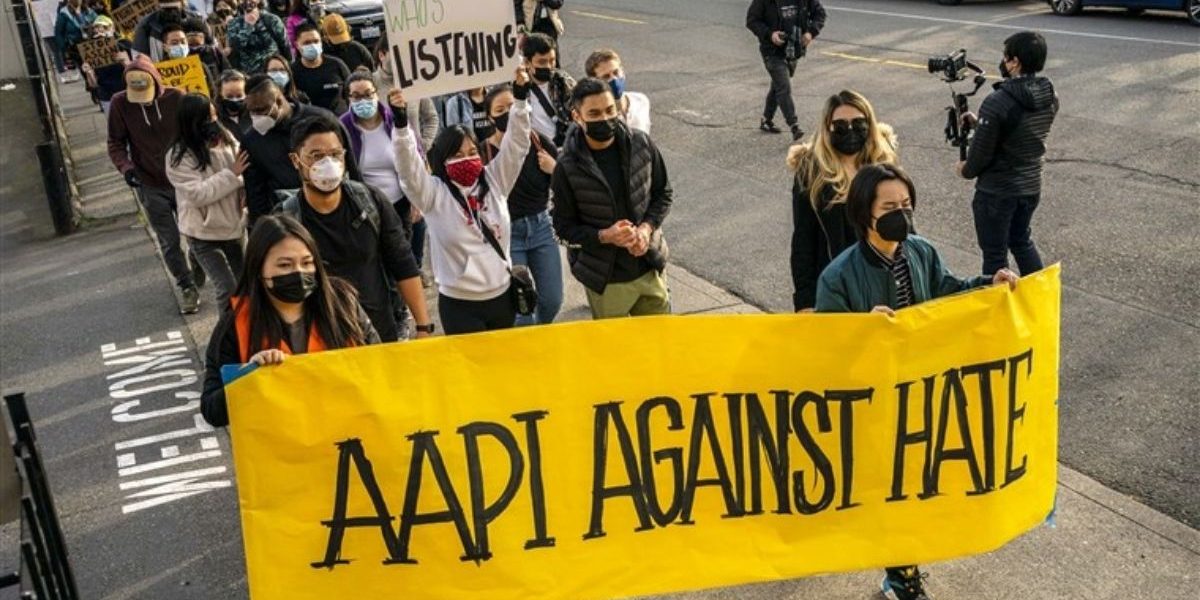Discriminatory acts against Asian Americans, an Outcome of the Pandemic?

The spa massacre on Tuesday brought to light some of the many instances of hate towards Asian Americans across the United States. The killings came amid a recent wave of attacks against Asian Americans that coincided with the spread of the coronavirus across the United States.
Since the beginning of COVID-19, Asian seniors have disproportionately been the target of cruel verbal and physical attacks that have significantly increased. Asian Americans across the United States are reporting a major increase in hate crimes, harassment, and discrimination tied to the spread of the COVID-19 pandemic.
The pandemic has galvanized Asian Americans, many of whom have long felt invisible, to speak out about the hatred and racism being directed their way.
According to Stop AAPI Hate, the San Francisco-based group which tracks anti-Asian American and Pacific Islander attacks reported, that 3,000 anti-Asian attacks have happened nationwide since March, when the COVID-19 pandemic exploded onto the U.S. shores.
Stop APPI Hate reports126 incidents against elderly Asian Americans from March to December 2020. Asian elders, who are seen as easy targets as most don’t speak English and cannot defend themselves or report the incident.
According to the data, Asian women report hate incidents 2.3 times more than men. A further examination of the submitted reports showed that in many cases, the verbal harassment that women received reflected the very intersection of racism and sexism.
The racially motivated rhetoric is attributed by many to former President Trump, who had repeatedly referred to COVID-19 as “the China virus,” blaming the country for the pandemic and helping shape the perception of Asian Americans as “perpetual foreigners.”
“There’s a clear correlation between President Trump’s incendiary comments, his insistence on using the term ‘Chinese virus’ and the subsequent hate speech spread on social media and the hate violence directed towards us,” says Russell Jeung, a co-founder of Stop AAPI Hate and a professor of Asian American Studies at San Francisco State University. “It gives people license to attack us. The current spate of attacks on our elderly is part of how that rhetoric has impacted the broader population.”
The everyday citizens are calling for an end to discriminatory hate crimes, the hashtags #StopAsianHate and #AsianLivesMatter shining a spotlight on xenophobia that needs to end.
The NYPD is responding to the attack by ramping up its presence in Asian communities throughout New York.
In January, President Joe Biden issued an executive order condemning the attacks and without naming them, criticized former President Donald Trump and other federal officials who repeatedly referred to COVID-19 as the “China virus” or the “Kung flu.” The order calls for better data collection about hateful incidents and mandates federal agencies to fight “racism, xenophobia, and intolerance” directed at Asian Americans and Pacific Islanders, or AAPI.
“The federal government must recognize that it has played a role in furthering these xenophobic sentiments through the actions of political leaders, including references to the COVID-19 pandemic by the geographic location of its origin,” Biden said in his order. “Such statements have stoked unfounded fears and perpetuated stigma about Asian Americans and Pacific Islanders and have contributed to increasing rates of bullying, harassment, and hate crimes against AAPI persons.”



